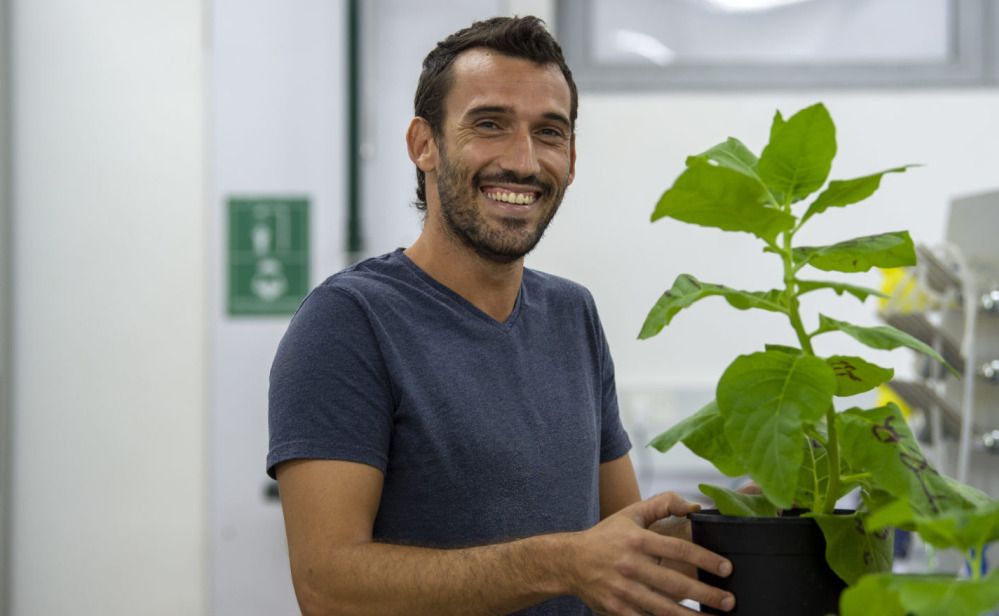US regulators have warned startups in the emerging field of ‘molecular farming’ that expressing animal proteins such as egg and dairy proteins in genetically engineered crops such as soybeans will require strict allergen management.
Animal proteins used to be made exclusively by animals. However, startups are now producing egg, dairy and meat proteins in microbes (precision fermentation), plants (molecular farming), and cultured animal cells (cultivated meat/dairy), production vehicles they claim are greener, kinder, and more efficient.
Each approach has its pros and cons, with molecular farming startups arguing that using major food crops such as corn and soy is the most cost-effective strategy. But it also presents allergen concerns.
In a open letter published Thursday, the US Food and Drug Administration (FDA) reminded firms of the legal requirements for such products. “Because adverse reactions to food allergens can be severe and life-threatening… we think it is important to reach out to developers and manufacturers now, while such plant varieties are still in early R&D stages.”
The FDA asks developers to “consider the food safety risks posed by such allergens and plan early in development to manage the risks,” but also highlights the risks of “unexpected and unlabeled” allergens entering the food supply, which “could have other consequences… such as needing to recall the affected products.”
It adds: “We are reminding them to consider the allergenicity issues related to their products, and how they would be stewarded from production to manufacturing to consumption so that they do not inadvertently or unexpectedly enter the food supply. We are also reminding them that they need to be properly labeled when intentionally part of the food supply.”
‘Inadvertent mixing’
The FDA warns: “If you are developing a plant variety with a transferred gene that encodes a food allergen… stewardship practices are likely to be more challenging and complicated than with other crops.
“When considering your proactive risk management plan, you will likely have to significantly bolster standard mitigation strategies and practices such as segregation of crops to provide the level of food safety assurance necessary to prevent inadvertent mixing of foods containing a transferred allergen with other foods.”
Growers, transporters, processors, food manufacturers, and others in the supply chain “may need to follow special precautions related to seed development and planting, storage of harvested material, and thorough cleaning of machinery at each step in order to prevent inadvertent commingling of new plant varieties with other varieties and products that do not contain the allergen,” adds the agency.

Nobell Foods: ‘We’re building a closed loop system’
Asked for comment on the letter, molecular farming startup Nobell Foods (an AgFunder portfolio company producing dairy proteins in soybeans for use in new animal-free cheeses) told AFN that Nobell was building a “closed loop system to ensure full containment of any potential allergen.” [Disclosure: AFN’s parent company is AgFunder.]
Founder Magi Richani explained: “At Nobell, we’ve been on a mission to create safe, sustainable, and affordable animal-free foods. Providing transparency for consumers as well as a safe and secure supply chain is our top responsibility. That is why we are focused on complying with all requirements from the FDA and USDA.”
Speaking to AFN earlier this year, Richani explained that soybeans genetically engineered to produce dairy proteins would produce three product streams. Oil, which is so refined that no protein is left in it; purified dairy protein; and soy protein, which would likely have some residual dairy protein in it.
‘Clearly it has to be labeled’
She added: “The oil will be refined so there will be no DNA left in it. With a lot of genetically engineered plants, you can still extract oil from it without having contamination concerns.
“For the protein piece, you can’t really separate the dairy proteins 100% from the soy proteins, so the soy protein will have to be labeled [as containing a dairy allergen]. The goal would be to use it in applications where you already have soy and there’s value from having dairy proteins as well, or for use in products where people are already using soy and dairy proteins together.
“So we wouldn’t be saying ‘this is a pure soy protein isolate,’ for example, we would be saying this is soy protein isolate and a dairy isolate at the same time, but majority soy with say 80% soy and 10% dairy. There’s actually interesting functionality and properties that you can get from having a little bit of dairy in the soy fraction, but clearly it has to be labeled.”
“Moolec appreciates the clear guidance provided by the FDA on this letter to manufacturers and developers of new plant varieties. We surely find this letter consistent with the conversations we’ve had with FDA on Molecular Farming to produce improved food ingredients.” Gastón Paladini, cofounder and CEO, Moolec Science
IngredientWerks: Engaging with regulators
Matt Plavan, CEO at IngredientWerks, which has filed patents covering the expression of casein, myoglobin, and leghemoglobin in corn, told AFN: “It is our practice to engage with the FDA and USDA at the very outset of our development programs to ensure we are in full alignment for the successful cultivation and deregulation of our novel crops.
“This approach has served us well in the past, and will be even more central to our future as we expand our exploration of the remarkable ways in which plant transformation can improve the nutrition, taste and sustainability of food.”

Pigmentum: Not all molecular farming approaches are the same
However, not all molecular farming operations present the same challenges, claimed Israeli startup Pigmentum, which is producing a variety of high value food ingredients from casein proteins to vanillin in indoor growing systems using lettuce as a host.
Lettuce grows more rapidly than soy and corn and presents fewer regulatory issues and allergen concerns given that it can grow indoors in a contained system, cofounder and CEO Tal Lutzky told AFN.
“We’re taking the allergenicity issue as a major subject in our process and technology development. This is one of the main reasons that we’ve chosen lettuce as our organism of production.
“The FDA update highlights the benefits of growing crops indoors in closed conditions rather than outdoor growing crops in terms of commercialization and safety aspects, especially referring to allergenic compounds.”





